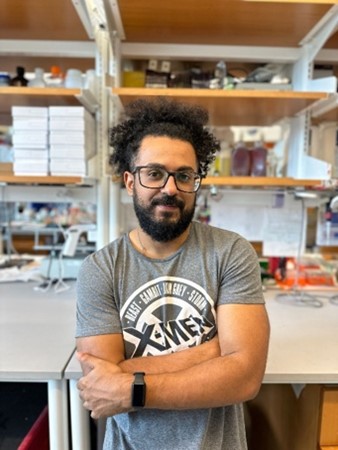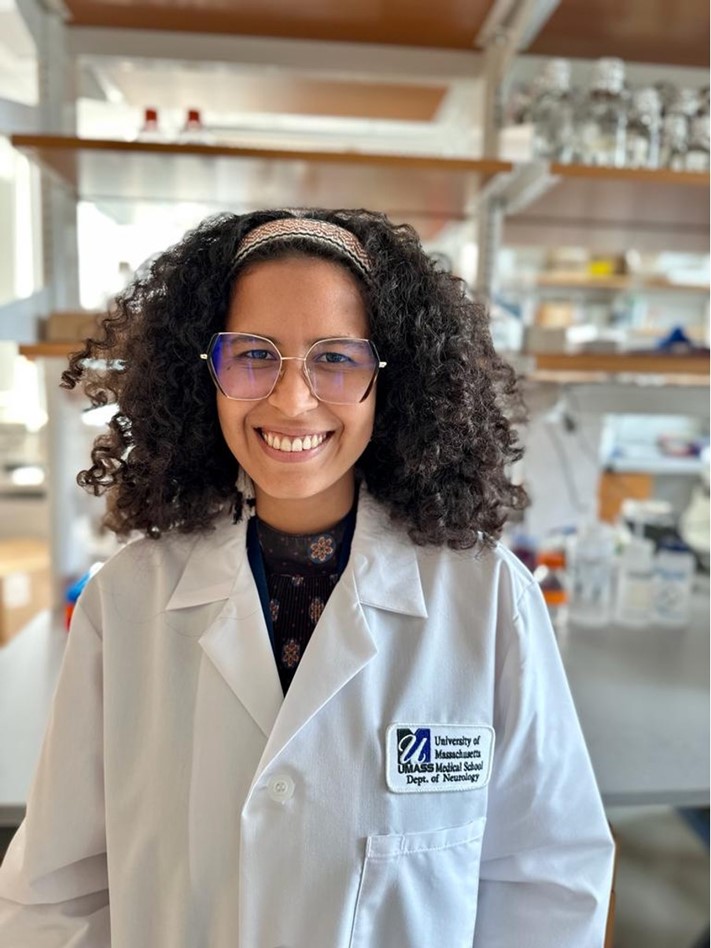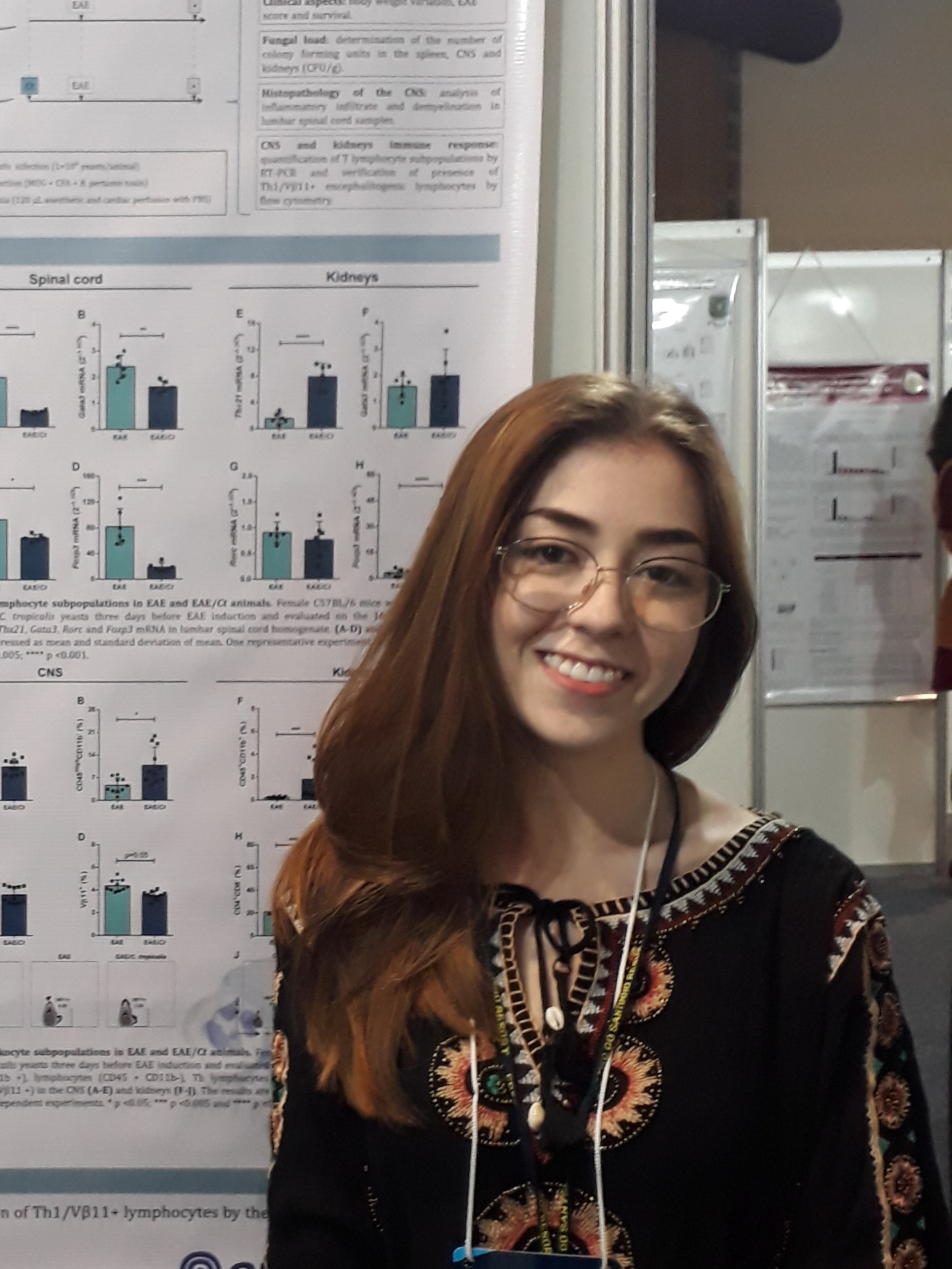Lab Members - Alumni
-

Tiago Francisco da Silva
Graduate StudentProject: The function of the ionotropic glutamate receptor NMDA in myeloid cells.
I am Tiago, a biologist who graduated at the São Paulo State University – UNESP, Brazil. I also have a master's degree in immunology from University of Sao Paulo, Brazil. In 2021, I joined the Laboratory of Neuroimmune Interactions as a PhD student. Currently, my research focuses on evaluating the role of the ionotropic glutamate N-Methyl-D-Aspartate receptor (NMDAR) in immune cells during the experimental autoimmune encephalomyelitis, which serves as a model for multiple sclerosis in mice.
Mostly expressed in excitatory neurons, the NMDAR is an ion channel activated by glutamate, allowing the entry of calcium into the intracellular environment. This leads to further membrane depolarization and further synaptic activation. Glutamate is the most abundant excitatory neurotransmitter in the central nervous system, playing a crucial role in memory and cognition. However, excessive glutamate production can lead to excitotoxicity, causing neuronal death, which is well-documented in neurodegenerative diseases like stroke, multiple sclerosis, Alzheimer's, and depression.
Even though immune cells possess glutamate receptors, their exact function remains poorly understood. Therefore, my research aims to uncover the role of the NMDAR in this specific context, shedding light on the interactions between immune cells and glutamate signaling. Specifically, I am enthusiastic about investigating the role of NMDAR on myeloid cells, such as macrophages and dendritic cells, and how it modulates their function during neuroinflammation.
This question is relevant and may add to the understanding on the role of neurotransmitters during neurological diseases such as MS. Also, it may pave the way for unconventional therapeutic targets.
-

Laura Caroline de Faria
PhD CandidateProject: Immunomodulatory Role of Extracellular Vesicles in Experimental Autoimmune Encephalomyelitis
I am passionate about the biology of EVs and their function. My big goal is to investigate the immunomodulatory properties of Extracellular Vesicles derived from Uterine Mesenchymal Stem Cells (meMSC-MVs), as well as those derived from the Central Nervous System Extracellular Vesicles (EV-CNS).
The uterus is a well-known suppressive environment for the promotion of embryo implantation and, thus, I believe it may be an interesting source of MSCs. To investigate their potential as a therapeutic tool, I use the Experimental Autoimmune Encephalomyelitis (EAE), the animal model of Multiple Sclerosis.
So, through in vitro experiments and in vivo approaches, I focus on unraveling the mechanisms by which they suppress the immune response, for example through miRNAs, cytokines, or even the presence of organelles. Also, I am interested in the function of EVs released in vivo, either physiologically or under inflammatory stimuli. For that, I isolate EVs derived from the CNS of naïve or EAE mice. The point here is to investigate how EVs released in vivo modulated both local and distant immune responses. Moreover, it may provide insights into the identification of CNS biological markers during neuroinflammation.
-

Natalia Munhoz Alves
Natalia Munhoz Alvez, visiting scholar from the University of Campinas, Brazil, has completed her year-long program with UMass Chan in the Neuroimmune Interactions Lab, working with investigator Jean Pierre Schatzmann Peron, PhD. Her research focuses on the pathogenesis of MS and the involvement of certain T lymphocyte subpopulations in the neuroinflammation process.


